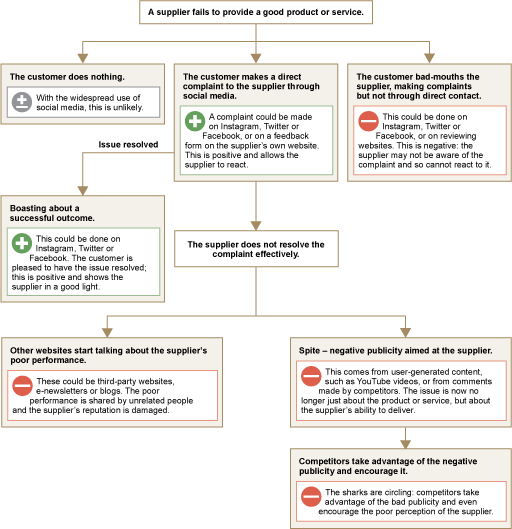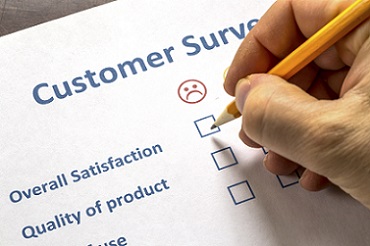5.1 Responding to customer use of social media
Social media may be used by both organisations and consumers for listening, gathering information and communicating, and plays an increasingly influential role in consumer decision-making and behaviour.
Discussion forums on social media have increased the range of opinions available to consumers about products; rather than just taking account of family and friends’ experiences, consumers are now able to take into account product reviews from large numbers of other consumers online. Such sources of information are particularly powerful when an offering is high involvement, expensive or difficult to assess before purchase, for example, in the case of a holiday or a visit to a restaurant. Consumers vary in their level of engagement with digital technology, according to their personality, demographic characteristics, geographic location and economic status. Even if you do not use social media, you may still have consulted online reviews of books or hotels before purchasing or booking them to reduce the perceived risk involved in buying in situations where it is difficult to evaluate an offering before purchase.
Much of the content on social media is, of course, generated by their users. From the point of view of marketing, social media provides consumers with the opportunity to be creative participants in the marketing process, to varying degrees.
Activity 5
Consider a time when a service or product fell short of your expectations.
What was your reaction to this?
Looking at this diagram where does your experience fit?
Now consider the other responses here, think of different examples that could be put in these boxes:

From a business point of view, the best thing we can do is let them know so that they can take action – ‘direct complaint’.
Businesses value the opportunity to publically correct and error – ‘boasting’.
Obviously they would rather the error was not made public, but that is becoming increasingly rare – ‘do nothing’.
A business is powerless to react to a failure if they do not know about it and it is damaging if consumers complain about the business but do not give them the opportunity to correct the failure – ‘bad-mouthing’.
It is important that a business addresses the failure once it finds out about it. If they do not this leads to a compounded failure.
Consider some of the consumer programmes you may have seen. These programmes exist on the basis of the failure to resolve the complaint. This could be seen as an extreme version of others getting involved and may even contain negative publicity – ‘spite’.
Where a business is in competition with other businesses, then the failures could present the competition with material they can use to further their own ends. Consider some of the political campaigns in the USA and increasingly in the UK.
Comment
Social media has made giving feedback and comment very easy, this is encouraging people to share thoughts and experiences.
The ‘instant’ nature of feedback through social media can be both a blessing and a curse to businesses. The blessing is that the business has an opportunity to quickly resolve issues and keep customers. The curse is that the unhappy customers are more likely to complain and any failure to resolve the complaint will escalate.
Have you ever seen a variation of this comment in a café or restaurant?
‘If you enjoyed your meal- tell your friends. If you didn’t – tell us’.
This is perhaps the essence of how businesses would like social media to work for them.
Whether or not you have given negative feedback yourself, it is hard to believe that you are not aware of someone you know who has.
5 Social media in marketing

